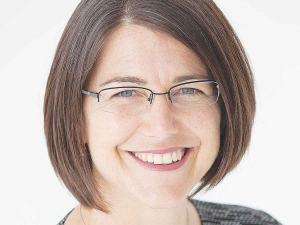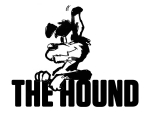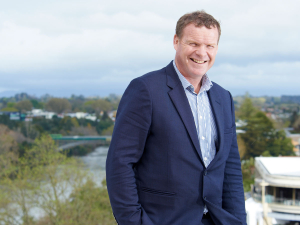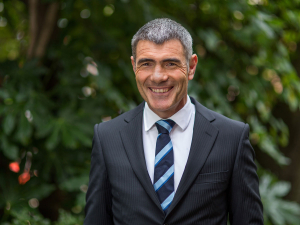OPINION: As the world deals with the impact of the Covid-19 crisis, it’s important to remember climate change hasn’t gone away.
It remains a clear and present threat to New Zealand’s ability to produce sustainable and natural food.
Farmers in regions such as the Hawke’s Bay and Northland, who have been managing through crippling droughts and feed shortages, can only expect to have to deal with this more frequently as the effect of climate change increases.
The sector is already demonstrating its commitment to making positive changes. The Joint Action Plan on Primary Sector Emissions (He Waka Eke Noa) is an innovative partnership to reduce primary sector emissions.
It aims to equip farmers and growers with the knowledge and tools they need to reduce emissions, while continuing to sustainably produce quality food and fibre products for domestic and international markets.
Sheep and beef farmers have also already reduced their industry’s greenhouse gas emissions by 30% since the 1990s and worked to protect and restore native habitats on their farms to the tune of 2.8 million hectares – the second largest holding of native forest and native biodiversity in the country.
That is sequestering carbon and making a real difference.
But we can do more. As a country, we need to be positioning ourselves in the sustainable products market in a way that is robust and verifiable. That means connecting scientific tools to carbon certification programmes to give our customers confidence.
That starts on-farm. For farms wanting to reduce emissions, it is not enough to know how much you are emitting, it’s about understanding where the emissions are coming from and what you can do about it within a context of other environmental considerations.
For example, OverseerFM is designed to support farm planning by allowing farmers to assess different management options on-farm and their impact across a range of environmental losses including GHG emissions as well as looking at carbon sequestration of forested areas of the farm.
This means when decisions are made, they are informed and can avoid pollution swapping.
What’s also important is ensuring that science-based tools like Overseer can be driven by information the farmer knows or has easy access to. This ensures that its use can be maximised to support as many farmers as possible. For example, we currently have over 11,000 farms set up in OverseerFM, which is equivalent to around half of the commercial farms operating in New Zealand.
All those farms set up to generate nutrient budgets for regional councils also have GHG reports available without having to change a thing. So rather than the two per cent of farms knowing their GHG emissions that we often hear reported, if they opened their OverseerFM accounts, nearly 50 per cent could.
OverseerFM also provides farm totals for each gas and product footprints that provide a performance measure on farm production.
Tools such as OverseerFM provide farmers with a way to understand what is happening on-farm for GHGs and crucially provides a platform to guide their direction of travel.
But if we really want to ensure that the country realises its export potential benefit from increasing the sustainability of production, the sector must constantly look at ways to feed into further value-add opportunities.
Overseer recently partnered with Toitū Envirocare to support the development of their farm certification programme. Now farmers using OverseerFM can join up to achieve Toitu Farm carbonzero or carbonreduce certification and get third-party verification for their on-farm carbon footprint. The programme is aligned with the highest international standards with the aim to empower farmers to get ahead of oncoming regulation and validate their environmental efforts. Farmers can then use OverseerFM to inform their carbon reduction plans.
Initiatives like this will support moving to a low emissions economy, through being able to realise value in certified sustainable food production.
We all have a role to play in helping farmers look at options to improve their sustainability and to work across industry to increase New Zealand’s agricultural product value so that the country can lead the world as a sustainable food producer.
• Dr Caroline Read is chief executive of Overseer Ltd











